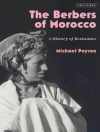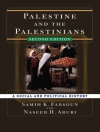The University of Toronto is Canada”s leading university and one of Canada”s most important cultural and scientific institutions. Covering the history of the University from its origins as King”s College in 1827 to the present, Martin Friedland weaves together personalities, events, and intellectual ideas to create a scholarly, yet highly readable history that includes major figures such as Northrop Frye and Marshall Mc Luhan, and dramatic events such as the admission of women in the 1880s, the University College fire of 1890, the University”s contributions during the First and Second World Wars, and the student protests of the 1960s.
In researching and writing the book Friedland drew on archival records, private diaries, oral interviews, and a vast quantity of secondary literature. He also drew on his own knowledge of the University as a student in the 1950s, and later as a faculty member and dean of law who was involved in some of the issues he discusses.
The history of the University of Toronto as described by Friedland is intimately connected with events outside the University. Transitions in Canadian society such as that from the early dependence on Great Britain and fear of the United States to the present dominance of American culture and ideas can be seen mirrored in the University. One can also trace the affects of the two World Wars, the Cold War, and the Vietnam War. As Canadian society and culture developed and changed through the latter half of the twentieth century, do too did the university: this university”s history is the history of Canada and all Canadians.
The first history of the university in seventy-five years, The University of Toronto: A History will be published to coincide with the University”s 175th anniversary. Anyone who attended the University or who is interested in the growth of Canada”s intellectual heritage will enjoy this compelling and magisterial work.












